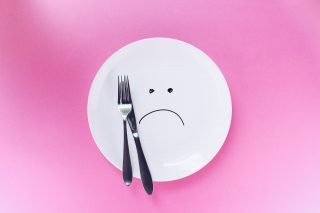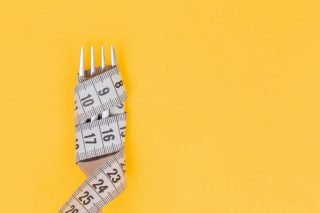Eating disorders affect around 9% of the world population. Now with society reeling from one of the most traumatic years in recent memory, from psychological distress to financial difficulties, it is understandable to find that the pandemic has changed and disrupted eating behavior.
Thanks to recent data, medical professionals have raised concerns about the potentially rising eating disorders statistics that are a result of the pandemic. Dr. Agnes Ayton is the chair of the Eating Disorder Faculty at the Royal College of Psychiatrists. She’s warned that the number of people experiencing problems had risen sharply, thanks to eating disorders essentially thriving during the lockdown period.
“We expect the tsunami [of patients] is still coming. We don’t think it has been and gone,” she said.
COVID-19 and Eating Disorders
Once you acknowledge the decline in physical activity (thanks to gym closures), and the inability to afford nutritious food, it’s no wonder that COVID-19 affected the way we ate, leading to a rise in disordered eating,

VGstockstudio/Shutterstock.com
“The COVID-19 pandemic we are currently living through poses a lethal double threat to those affected by eating disorders,” penned pediatrician Luisa Fernanda Gonzalez, MD, in a letter to the Times Union in Albany “We must advocate bringing awareness to this issue,” she wrote. “There needs to be more education regarding triggers and preventive measures.”
What has the research found?
- A study, published in the International Journal of Eating Disorders in June 2020, found that 79% of U.S. patients were worried that their eating disorders were going to regress during the pandemic. Additionally, over half of these patients were concerned about a lack of social support, as well as being in a triggering environment.
- A May 2020 study published in the European Eating Disorders Review found that 30% of bulimic patients bulimia and over 60% of anorexic patients reported that their symptoms worsened during the pandemic. It should be noted that nearly 50% of these individuals were not receiving treatment of any kind.
- A more recent study published in the International Journal of Eating Disorders linked the pandemic to mindless eating and snacking, increased food consumption, a generalized decrease in appetite for dietary intake, eating to cope, as well as pandemic-related reductions in dietary intake, and a re-emergence or marked increase in eating disorder symptoms.
The findings also found that 8% of those studied revealed extremely unhealthy weight control behaviors, 53% had less extreme unhealthy weight control behaviors and 14% reported binge eating. The study revealed that these findings were strongly linked to poorer stress management, greater depressive symptoms, and moderate or extreme financial difficulties.
- Priory Group is a provider of mental health care facilities in the United Kingdom. The brand reported that it had a 61% increase in the number of inquiries about treatment for anorexia nervosa at its private clinics and a rise of 26% in the number of inquiries regarding treatment for binge eating disorder.
Dr. Lorna Richards, is a psychiatrist specialising in adult eating disorders at the Priory Group. She also specialises in adult eating disorders at Priory’s Woking hospital and Priory’s Life Works centre.
 “Since the early summer of 2020, I have seen a huge increase in referrals from people with existing disorders who have deteriorated since the pandemic emerged.” she shared, “I have also seen an increase in new patients – specifically people, who, during the first lockdown, were starting to develop eating disorders for the first time.”
“Since the early summer of 2020, I have seen a huge increase in referrals from people with existing disorders who have deteriorated since the pandemic emerged.” she shared, “I have also seen an increase in new patients – specifically people, who, during the first lockdown, were starting to develop eating disorders for the first time.”
How is COVID-19 causing eating disorders?
1. Lack of control
How many of us felt out of control for the better part of 2020? Well, for those who couldn’t handle the loss of control, they tried to find something that they could control – their diet.
Unfortunately, the need to control what they’re eating soon turned into an obsession, and it wasn’t long before they began having an unhealthy relationship with food.
2. Social media
While social media helped keep some of us sane last year, this fact wasn’t true for everyone else. Others were bombarded with articles and tips on how to avoid “quarantine 15,” or which new exercise routine they needed to adopt.
Some people may have inadvertently forgotten what a real body looks like, thanks to the isolation period during the pandemic. In fact, the only bodies they saw were on social media and, thanks to Khloe Kardashian, we know that these images are far from reality. Unfortunately, this behavior has now caused people to have a skewed relationship with their bodies.
3. Lockdown pounds
If you were already body-conscious before the pandemic, the weight you likely gained during the lockdown period probably didn’t help matters.

Photo by Thought Catalog on Unsplash
Whether it was due to a change in sleep patterns or exercise routine, we each gained a few extra pounds and some people vouched to do whatever they could to lose the weight. Unfortunately, this also included skipping meals, purging, or excessively exercising.
4. Poor mental health
2020 wasn’t exactly the greatest on our mental health and various studies have proven this fact.
Be it depression, anxiety, or elevated levels of stress, our mental health definitely took a toll during lockdown. While mental health conditions show themselves in different ways, common symptoms include changes in eating habits – we either eat less or eat more – and weight.
Could I, or a loved one, have an eating disorder?
Symptoms vary, depending on the eating disorder. According to Mayo Clinic, the most common signs of eating disorders include:
- abnormally low body weight
- intense fear of gaining weight
- use of laxatives or diet aids to lose weight
- Obvious changes in dietary habits
- Eating large amounts of food in a short amount of time
- Not eating at all or very little
- Eating alone
- Vomiting after eating
- Excessively exercising
- Obsessing over food
- Missing or irregular periods
How can I address disordered eating?

Photo by Diana Polekhina on Unsplash
If you’re battling with your eating habits as a result of the pandemic, here are a few ways you can address the problem.
Be kind
Sarah Anzolvar is a registered dietitian. Speaking to VeryWell, she suggests being a little kinder to yourself,
“It’s important to recognize that the last year (or more) has been extremely challenging for everyone, and it’s brought on a unique set of circumstances from social isolation, financial difficulties, food insecurity, anxiety over health, increased demands in home life, and more.”
As such, you shouldn’t feel guilty about the way the pandemic has affected your eating habits, rather show yourself some grace.
Don’t feel guilty
You survived a pandemic – you’re allowed to live a little.
“If you do decide to eat an entire pint of ice cream, you aren’t a bad person. Reflect on it, decide if it made you feel better, and move on, deciding how you’ll cope next time you’re upset.” explains weight loss dietitian Lainey Younkin.
Find ways to manage your stress
Stress eating is common and during lockdown, stress had a huge effect on our eating habits. It either caused us to eat more or not at all.

ViChizh/Shutterstock
So, if you’re still battling with stress, try learning other coping mechanisms to manage it. This can include meditation, reading, going for a walk, or even listening to some music.
Sleep better
“Lack of sleep leads to a rise in ghrelin, the hormone that tells you you’re hungry,” explains Younkin. Therefore, it’s important to get plenty of rest – 7-8 hours of sleep a night is perfect. If you’re struggling to get some shut-eye, try these effective sleep hacks.
Get help
If you’ve noticed that your eating habits changed during lockdown, and they’ve seemingly worsened, then it’s important to reach out for help as it’s the best thing to do for your health.
References
Fernández-Aranda, F., Casas, M., Claes, L., Bryan, D. C., et al. (2020). COVID-19 and implications for eating disorders. European eating disorders review : the journal of the Eating Disorders Association, 28(3), 239–245. https://doi.org/10.1002/erv.2738
Simone, M., Emery, R. L., Hazzard, V. M., Eisenberg, M. E., Larson, N., & Neumark-Sztainer, D. (2021). Disordered eating in a population-based sample of young adults during the COVID-19 outbreak. The International journal of eating disorders, 10.1002/eat.23505. Advance online publication. https://doi.org/10.1002/eat.23505
Termorshuizen, J. D., Watson, H. J., Thornton, L. M., Borg, S., et al. (2020). Early impact of COVID-19 on individuals with self-reported eating disorders: A survey of ~1,000 individuals in the United States and the Netherlands. The International journal of eating disorders, 53(11), 1780–1790. https://doi.org/10.1002/eat.23353



 “Since the early summer of 2020, I have seen a huge increase in referrals from people with existing disorders who have deteriorated since the pandemic emerged.” she shared,
“Since the early summer of 2020, I have seen a huge increase in referrals from people with existing disorders who have deteriorated since the pandemic emerged.” she shared,

![women [longevity live]](https://longevitylive.com/wp-content/uploads/2020/01/photo-of-women-walking-down-the-street-1116984-100x100.jpg)










